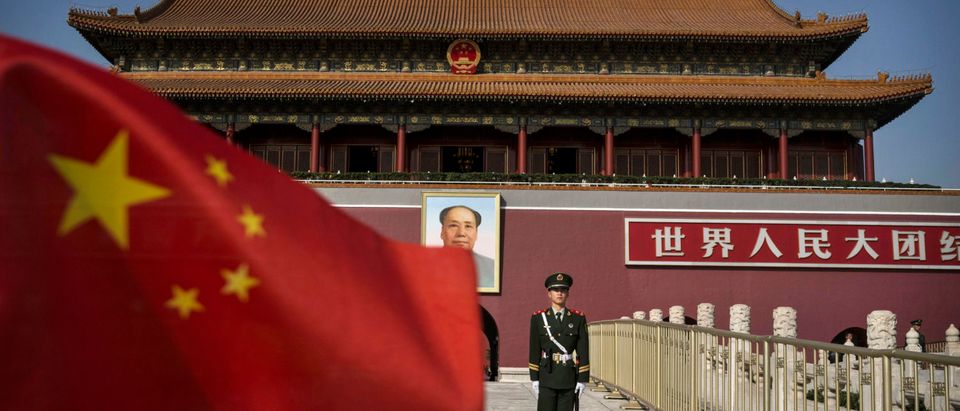As American universities navigate the minefield of diversity-based hiring, idealistic collaboration with foreign persons and entities, and communist-minded foreign saboteurs, the stakes keep getting higher. And behind this cat-and-mouse game of trying to seize America’s intellectual, technological, and military advantages for Beijing lies a determined and cunning enemy in the People’s Liberation Army (PLA).
On Jan. 28th, 2020, the chair of Harvard’s chemistry department, Charles Lieber, was arrested for allegedly lying to the Defense Department and the National Institutes of Health (NIH) about his contract with Wuhan University of Technology, according to Viswanatha and O’Keeffe of The Wall Street Journal. Lieber allegedly hid his participation in the PRC’s Thousand Talents Plan — a scheme by which top Western scientists are lured into moonlighting for Chinese institutions behind their primary employers’ backs.
Also on Jan. 28th, federal authorities outlined an indictment against Ye Yanqing, a Boston University researcher who allegedly took directions from the People’s Liberation Army (PLA) from 2017 to 2019. According to Global Biodefense, on her J-1 visa application Ye lied about her ongoing service at the National University of Defense Technology (NUDT) in her role as a PLA lieutenant and member of the Chinese Communist Party (CCP). Ye’s electronic devices showed she accessed U.S. military websites, researched U.S. military projects, and compiled information on U.S. robotics and computer-science specialists — all at the behest of a PLA colonel who teaches at NUDT.
Just days before the Lieber arrest, a Harvard-sponsored researcher was indicted for smuggling vials of stolen biological research. Just before Zheng Zaosong boarded a December flight from Logan’s International Airport to Beijing, alert U.S. customs agents discovered 21 vials of biological material “wrapped in plastic and hidden in a sock.”
Policy and Law-Enforcement Response
A federal prosecutor in Boston, Andrew Lelling, noted that “chemistry, nanotechnology, polymer studies, robotics, computer science, and biomedical research … [are but] a small sample of China’s ongoing campaign to siphon off American technology and knowhow for Chinese gain.” The director of the White House Office of Science and Technology Policy, Kelvin Droegemeier, suggested that failure to report dual employment and participation in programs with non-allies can result in “hidden transfers of information [and] know-how.” Moreover, Joseph Bonavolonta, of the FBI office in Boston, warned of China’s rampant use of “nontraditional collectors such as professors, researchers, hackers, and front companies.”
A Senate subcommittee report warned in the fall of 2019 that disloyal scientists have downloaded sensitive research files before flying to China, filed Chinese patents based on U.S. research, lied on grant applications, and failed to disclose monies received from Chinese institutions, according to Associated Press.
Clearly, American watchmen (sheepdogs) are far fewer than in previous generations. Ever since Values Clarification, the removal of prayer from public schools, feminism, Nixon’s rapprochement with communist Beijing, ethnic studies courses, diversity, and inclusion, many Americans have thrown in with globalism and moral relativism. But Communist China is not bound by diversity requirements and exhibits a zero-sum mentality courtesy of Sun Tzu’s The Art of War.
Bursting the Bubble of Appeasement-Oriented Globalists
In addition to its robust production of aircraft carriers, destroyers, and stealth fighter jets, China’s military (PLA) has developed strong anti-access and area denial (A2/AD) capabilities, according to James Steels’ 2017 piece in the UK Defence Journal. Using its C4/ISR capabilities (command, control, communications, computers, intelligence, surveillance, and reconnaissance), the PLA plans to hunt down U.S. aircraft carriers and attack them with DF-26 anti-ship ballistic missiles. China’s Chengdu J-20 stealth fighters will be deployed to challenge the USAF’s F-35s and F-22s; the presence of the J-20 fighters on artificial islands in the South China Sea could easily interrupt a vital trade route and enlarge China’s strategic periphery.
China has deployed Shenyang J-11 fighters and HQ-9 surface-to-air missiles to Woody Island, near Vietnam; China has a 3,000-meter runway on Fiery Cross Reef, capable of handling both fighters and bombers; and at other locales in the Spratly Islands, China has put in emplacements that are compatible with anti-aircraft guns or CIWS (close-in weapon system) platforms, according to Steels.
According to David Archibald of Quadrant Online, China’s humiliation at the hands of foreign powers in the 1800s led to the Nationalists setting up a National Humiliation Day in 1927. That congealed memory of humiliation and the glowing memory of Chinese prominence in the Tang dynasty (618-907) have fed an appetite for expansionism.
In the South China Sea, China has built up seven artificial islands for use as military bases and claimed 90 percent of that sea, so non-Chinese ships and planes may have to ask permission to cross; existing Vietnamese, Filipino, and Malaysian bases in that sea will be at great risk in the event of a hot war. In the East China Sea, China has a ten-pad helicopter base for striking at any who would challenge Beijing’s claim to the Senkaku Islands, and has an airbase nearby for backup.
Japan has concluded basing deals with the Philippines, so if necessary the two Asian neighbors could form a phalanx against any Chinese aggression.
In the big picture of U.S.-China engagement, concerned Americans and patriots must keep in mind that there is an end game to the PRC’s decades-long flooding of U.S. STEM departments, theft of U.S. intellectual property, and commercial bullying that required U.S. companies to hand over American technology for the price of entrance to the Chinese market. The end game is that Communist China, still beholden to dictator Mao Tse-tung, now has fighters that could theoretically fly over our heads, quiet subs that could sneak up on our coastal cities, and warships that could harm our Navy and deliver horrific missiles into our midst.
Sabin Geyman is the author of Reaping the Whirlwind: Broken Foundations, Lukewarmness, and Impending Judgment as well as Testing the Spirits: Engaging the Culture and Embracing the Light of Jesus. Previously, Geyman worked as a reporter in Taiwan and as a language analyst for the National Security Agency.


